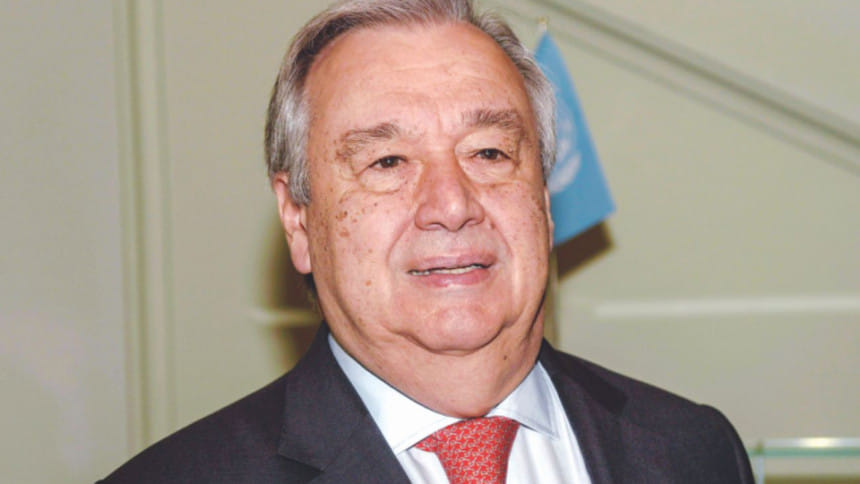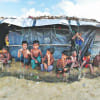Will Guterres' visit move the Wall?

Now that the chief of the UN himself has come and heard the "heartbreaking accounts from Rohingya refugees", will the Wall hear the same? We mean the UN Security Council and the Myanmar government. Will they act to end the untold miseries of the world's most persecuted people of our time?
It is an open question and the answers could be both yes and no. Only the history of the Wall can shed some light and yet history may change.
Myanmar, as we all know, has a long record of repressing its own people.
Since the military seized power in 1962, the junta set about a ruthless reign, disregarding human rights, squashing and imprisoning the democracy-loving people -- Suu Kyi is the brightest example who had to spend much of her time in between 1989 to 2010 in some form of detention.
The junta's misrule has bred corruption, spread drug across the globe and, as this article is focused on, and led to dehumanisation of the Rohingyas as some mere animals whose only future is relegated to persecution.
Years of global pressure could not make Myanmar to reform its political door, which it slightly opened in 2010 with a shadow of an election. But its character has not changed, or rather has hardened with the newly found friends in Russia and India to add with its age-old ally, China.
Whenever a move is taken in the UN to pass a resolution against Myanmar on the Rohingya issue, China and Russia -- two permanent members of the Security Council -- torpedo the efforts, for which the UN could not play any effective role in forcing Myanmar to stop the pogrom on the Rohingyas.
India remained silent in condemning Myanmar's monstrous actions although it sent some humanitarian aid to Bangladesh and its External Affairs Minister Sushma Swaraj avowed that India stands beside Bangladesh. It did not actually weigh in on Myanmar with its regional superpower aura.
Before the visit of UN Secretary General António Guterres, the UN Security Council had sent a mission to the Rohingya camps. The team went back but nothing happened in last two months.
Guterres has said a UN fact finding mission will submit its report "very soon".
But the fact that ten months have elapsed since Myanmar has driven away more than seven lakh Rohingya bares the urgency of the matter in the mind of the UN bureaucracy. That reminds us the UN failure in tackling the Rwanda genocide because of delays in UN decision.
Against this Wall of silence, Guterres today looks like a forlorn warrior.
In September, he had issued an unprecedented letter in the last 28 years since the 1989 Lebanon conflict to the Security Council for its action on Myanmar that went unheeded.
Guterres is an extraordinary leader who always stood for causes. He did not hesitate to resign as the prime minister of Portugal in his second term when his government was floundering.
Then the socialist man did something unprecedented for a prime minister; he went to the slums of Lisbon and taught math to malnourished children.
He did not do it for its show value; he did not allow any photographer or journalist to cover his slum endeavour. He always worked with "heart and reason" as his political campaign slogan was in 1995.
So when he says the Rohingya children in Cox's Bazar camps reminded him of his grandchildren, we believe he will try his best to save these doomed souls.
He will put in his best to move the Wall and make it animated into action. Nobody in his right mind would want to see Guterres fail as his predecessors had in the cases of Rwanda and Bosnia.
We still can hear a frustrated Boutros Boutros-Ghali's lament about the failure in Rwanda at a press conference: "It is a failure not only for the United Nations; it is a failure for the international Community."
And now we hear Guterres' urgent call: "My appeal to the international community is to step up support."
We don't want his voice break into a lament just like his predecessors'. After all, Dag Hammarskjold, the second UN secretary general whom everybody holds in dear esteem, had described the role of the UN in clear terms as: "the UN was created not to lead mankind to heaven, but to save humanity from hell."
So, let the Wall move and save these souls.

 For all latest news, follow The Daily Star's Google News channel.
For all latest news, follow The Daily Star's Google News channel. 







Comments